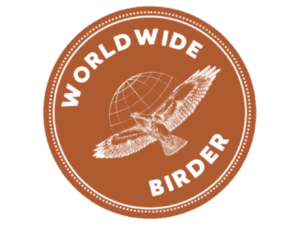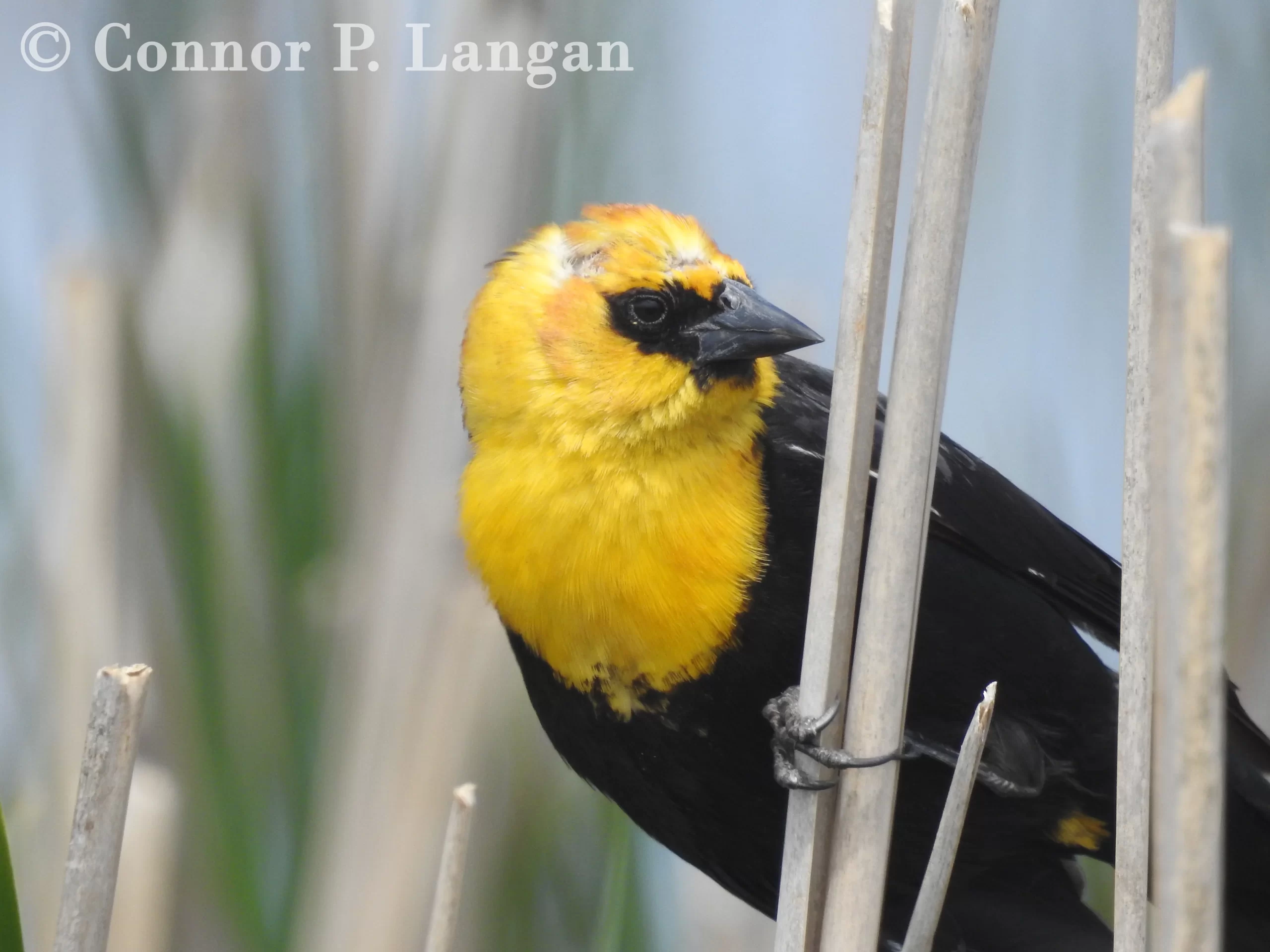More than 430 bird species have been observed in the state of Minnesota. Many of the birds that inhabit the state have yellow coloration in their plumage, making identification difficult. Not to worry – I’ve created this guide for 23 yellow birds in Minnesota to help those who struggle to identify Minnesota yellow birds.
If you recently observed a small yellow bird (Minnesota), then this guide is just what you need. Read on to find the bird that you observed!
Table of Contents
Vireos
There are a handful of vireos native to Minnesota, but only two routinely have yellow in their plumage.
Philadelphia Vireo
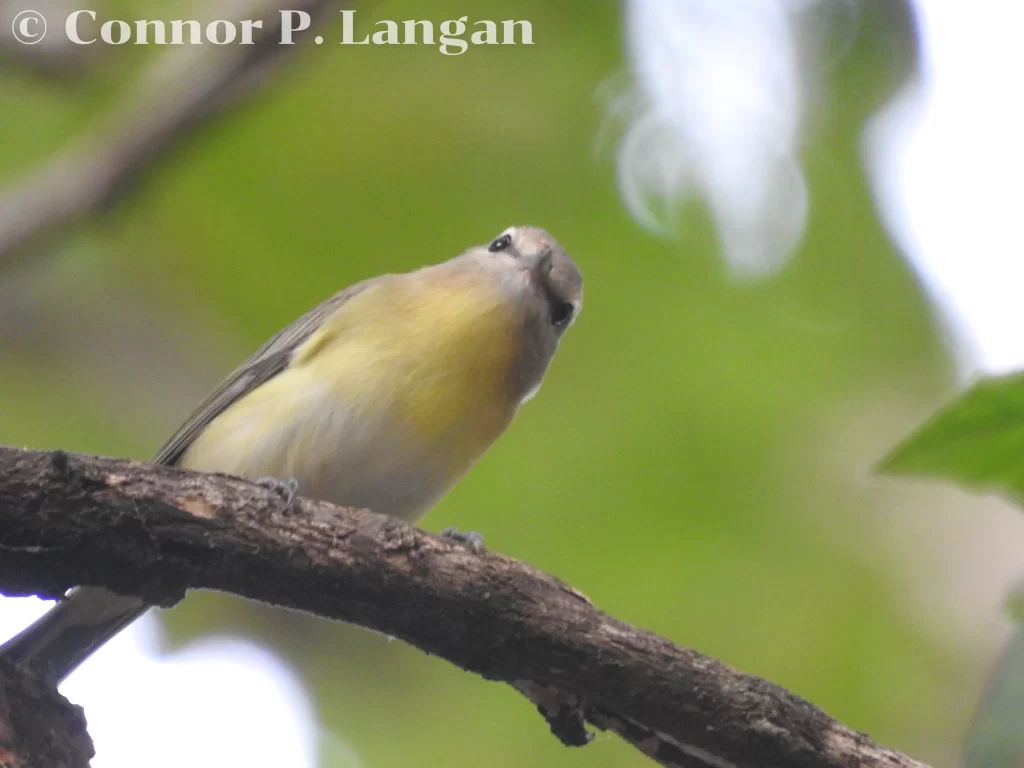
Some may not view Philadelphia Vireos as yellow Minnesota birds because they can be quite drab. However, colorful individuals may appear to be quite yellow.
They are a fairly widespread migrant, and they reproduce in the northeast corner of the state. Be sure to avoid confusing them with similar Warbling Vireos.
Yellow-throated Vireo
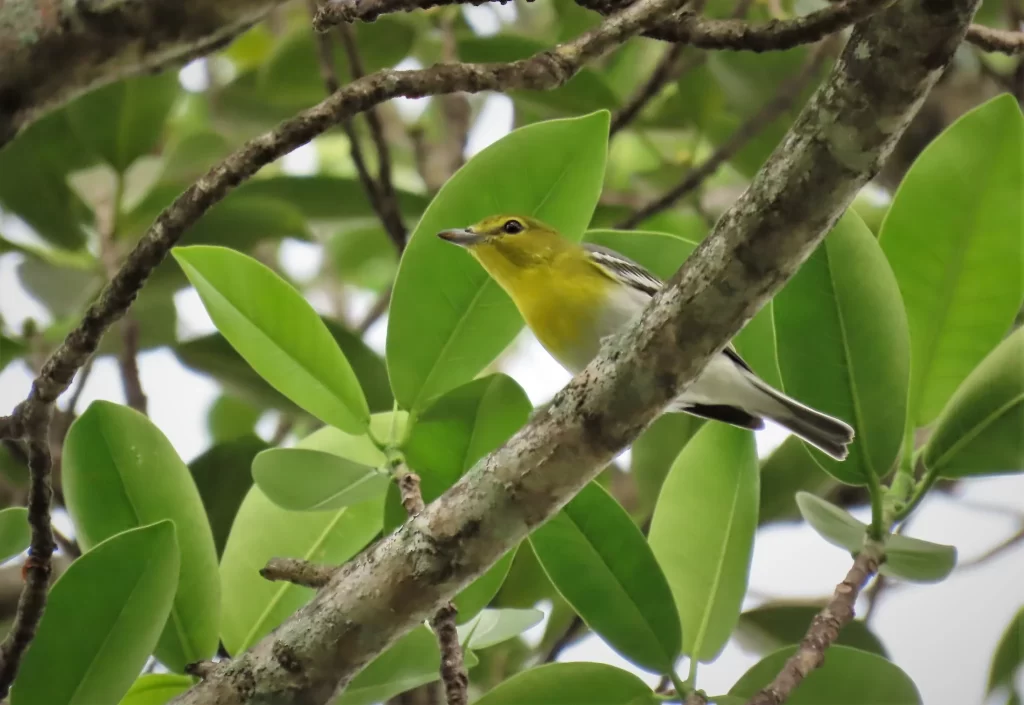
Yellow-throated Vireos can be found throughout Minnesota during the summer breeding season and spring and fall migration. These yellow birds in Minnesota tend to avoid the boreal forest of the north. Instead, they favor tracts of deciduous trees in central and southern MN where they eat insects as large as cicadas.
Yellow-throated Vireos may be colorful birds, but keep a low profile as they forage in trees. Look and listen for these Minnesota yellow birds in forests, parks, and woodlots.
Finches
Of the 10 expected finch species, two are considered to be yellow Minnesota finches.
American Goldfinch
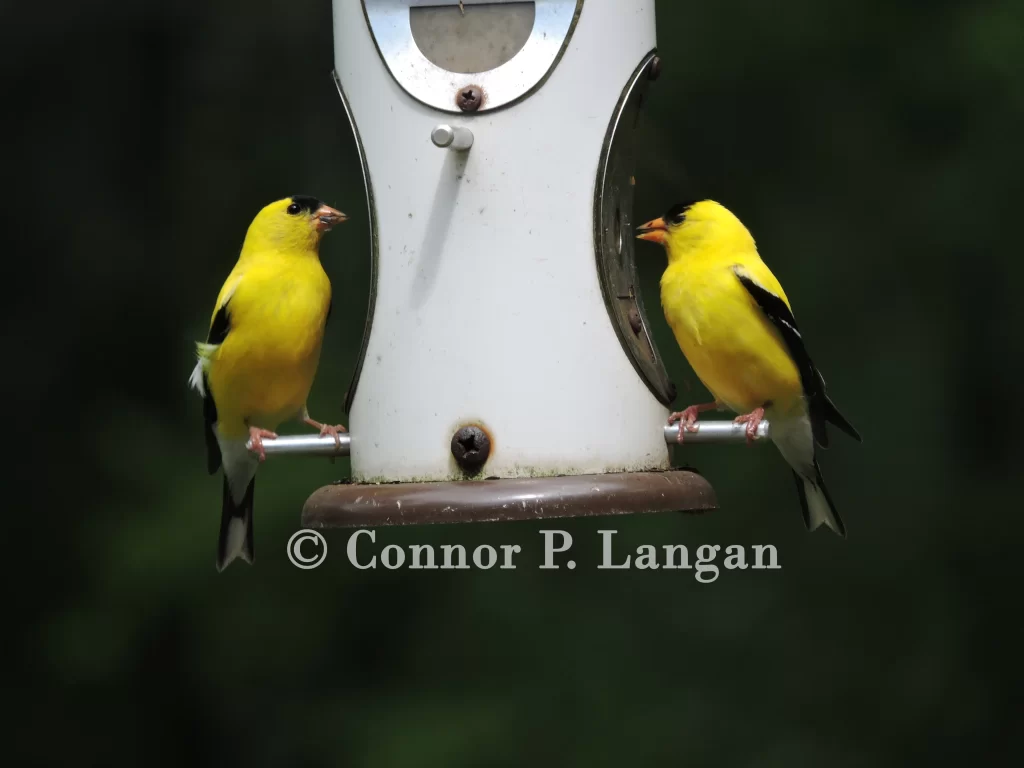
American Goldfinches are a common sight, as they can be observed anywhere in the state no matter the season.
While goldfinches are not as bright and colorful in the nonbreeding season, they nonetheless remain during the frigid winters. Although these finches in MN are small yellow birds in MN, their yellow and black plumage makes them easy to find. Backyard birders can attract them by setting bird feeders out.
Evening Grosbeak
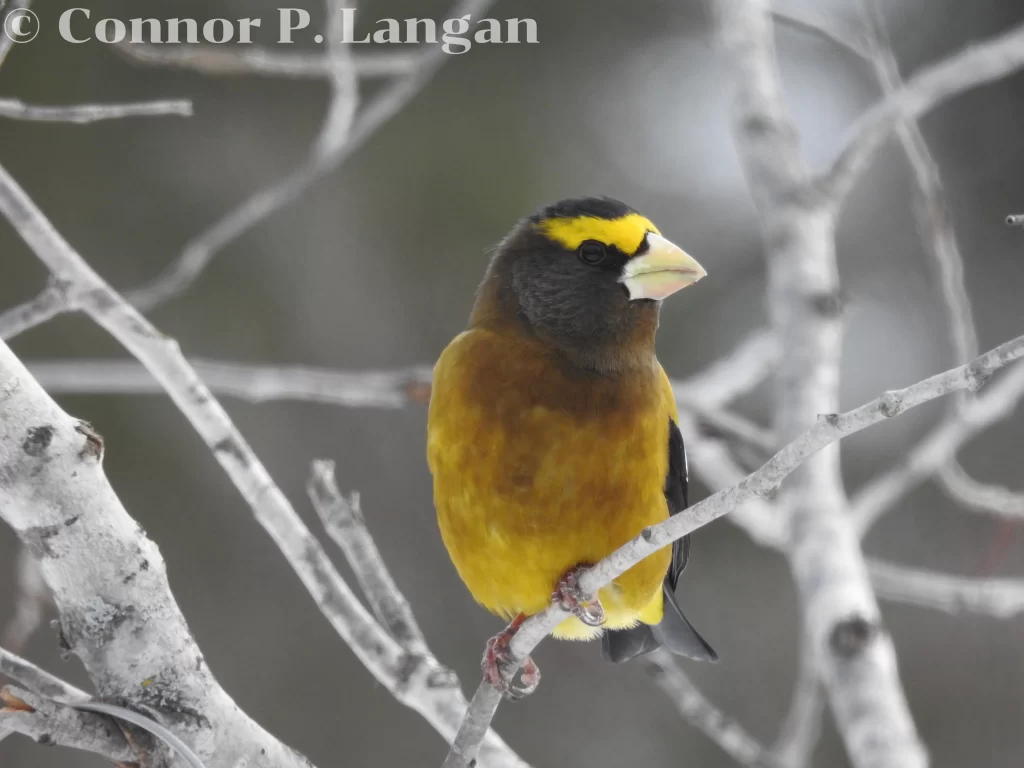
Many Evening Grosbeaks in Minnesota are present throughout the year. However, these finches in MN only breed in the northern fourth of the state.
Look for these MN yellow birds at bird feeders during the winter where they’ll readily eat an assortment of different seeds. Evening Grosbeaks may wander into the Twin Cities area in winters when food is scarce in the northern part of the state.
Blackbirds
Yellow may not be the first color that comes to mind when considering blackbirds, but several species feature this color. Three blackbirds are yellow birds in Minnesota.
Eastern Meadowlark
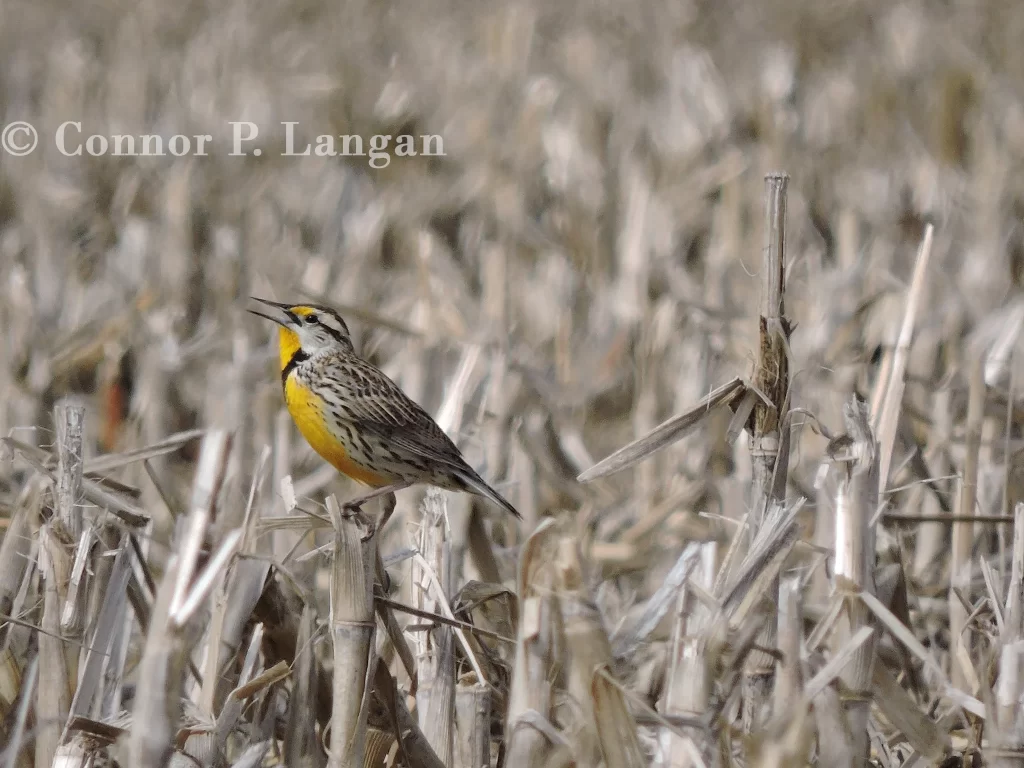
Eastern Meadowlarks reside in a variety of grassy habitats from spring through fall.
Listen for their melodic song as males proclaim their territory throughout the state’s open spaces.
These blackbirds are common in the southern half of Minnesota, but they become more scarce in the northern half of the state as boreal forests become the dominant plant community.
Western Meadowlark
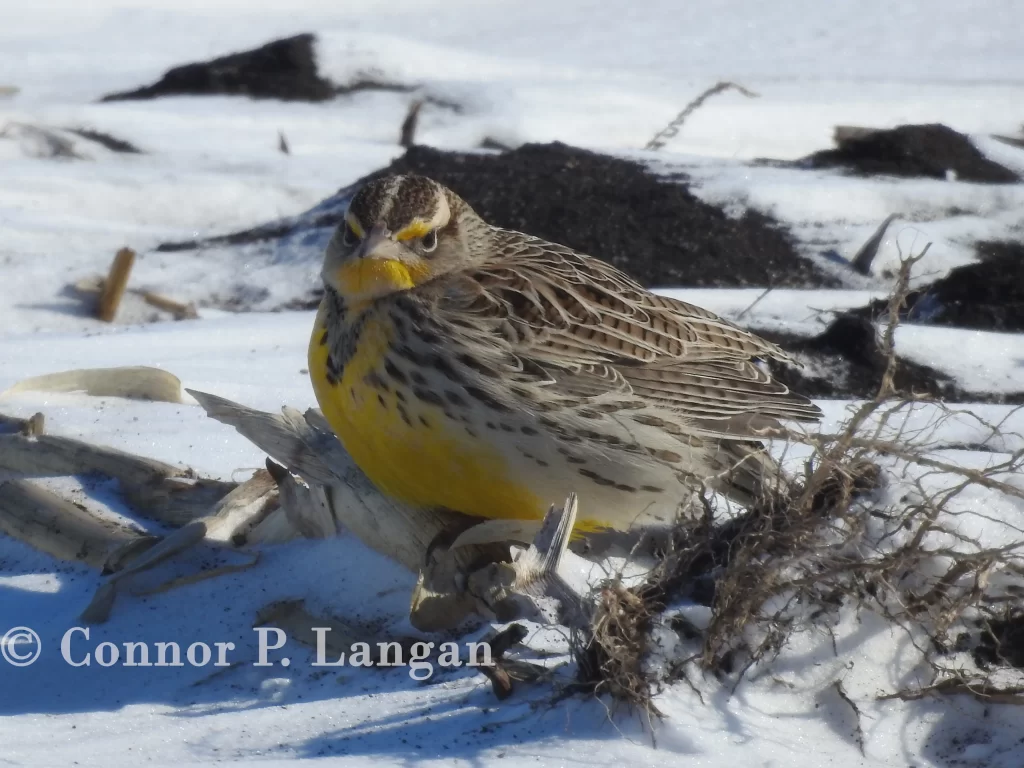
Though it is known for its prevalence west of the Great Plains, Western Meadowlarks are well-established in much of the Midwest.
These yellow birds in MN frequent various grassy locales throughout the state, being better adapted to survive in northern Minnesota than their Eastern counterparts.
Yellow-headed Blackbird
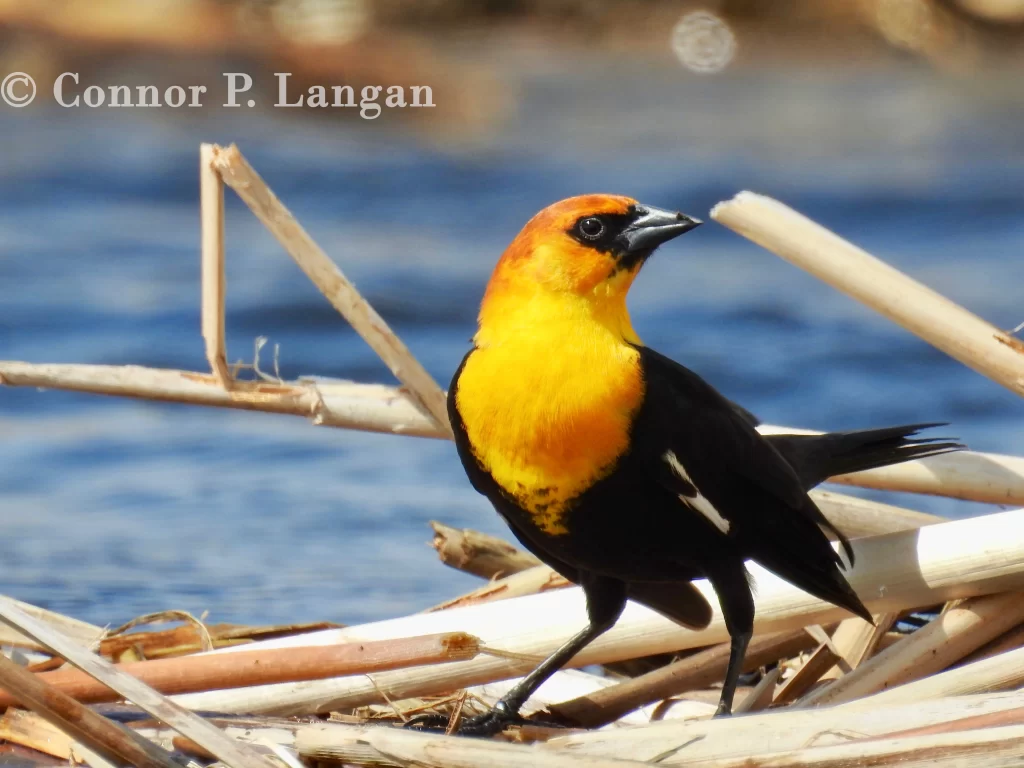
Yellow-headed Blackbirds are sizable yellow birds in Minnesota with striking black, white, and yellow feathers. Despite their bold appearance, they conceal themselves quite well in the marshes that they inhabit.
Those who hope to find one should try to listen for their song, which is an unmelodic, harsh screech.
Yellow-headed Blackbirds reproduce throughout the state, but they are difficult to find in northeastern Minnesota where thick boreal forest exists.
Warblers
Yellow is one of the most common colors that is featured in the plumages of Minnesota warblers. Over 30 warbler species are expected each year, with many being considered Minnesota yellow birds.
Blue-winged Warbler
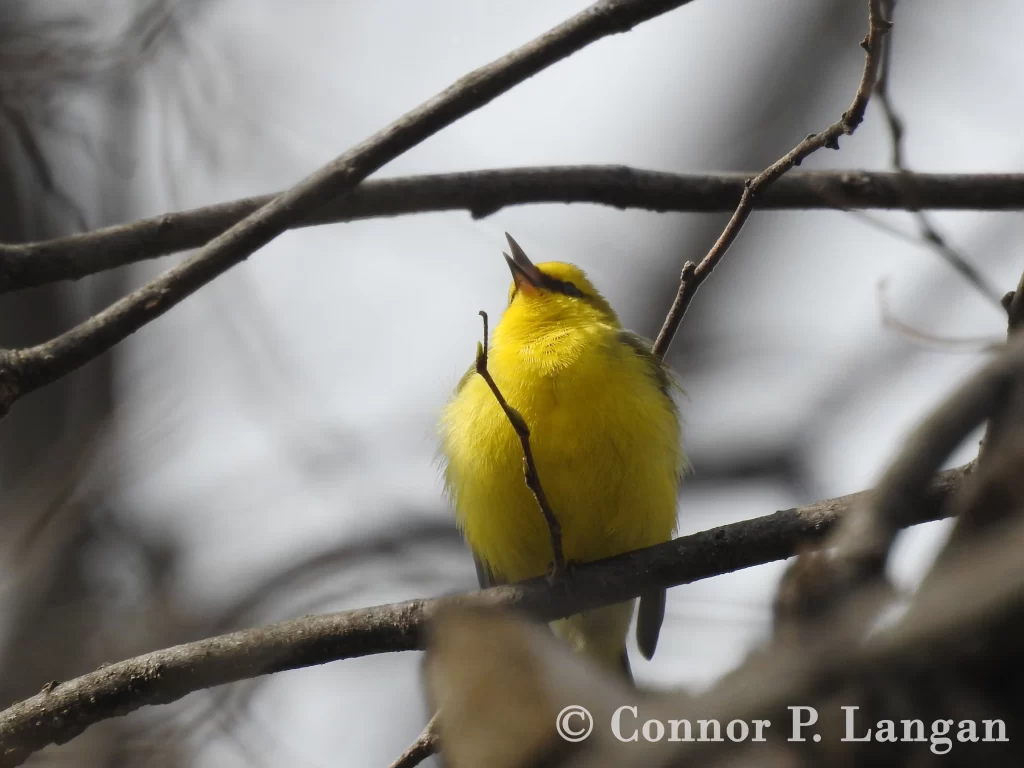
Blue-winged Warblers are southeastern Minnesota warblers, as this area of the state supports the open, early successional habitat that they need.
It can be difficult to find one of these yellow Minnesota birds in other parts of the state. Luckily, their buzzing song often gives away their presence.
Canada Warbler
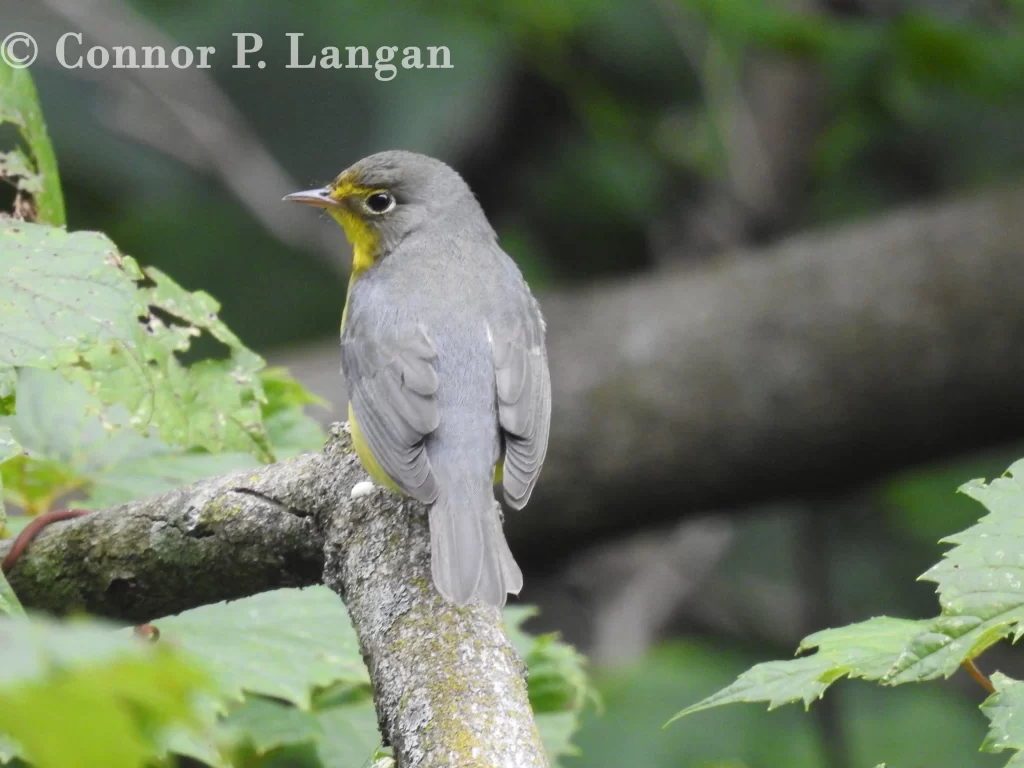
Canada Warblers can be found during their spring migration in May and their fall migration in August and September.
These gorgeous yellow birds in MN spend summers in the boreal forests and bogs along the Canada border.
Cape May Warbler
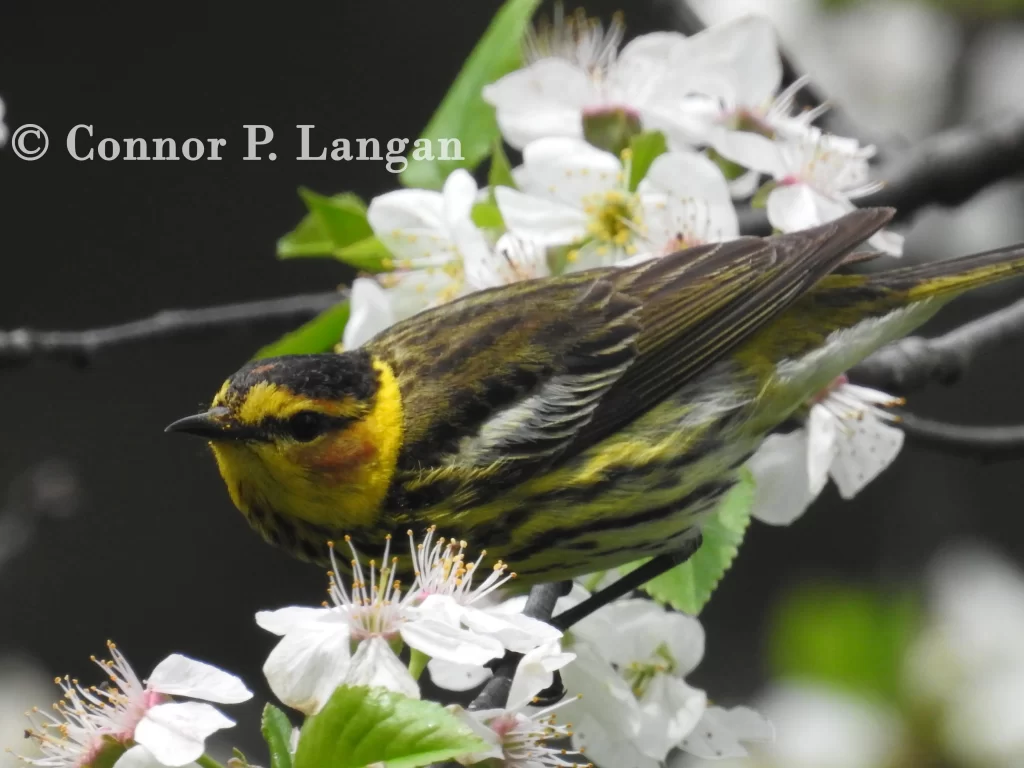
You will struggle to find a bird that is as stunning as a Cape May Warbler. These warblers in Minnesota can be found in the state during their spring migration in May or their fall migration a few months later.
Cape Mays breed in conifers of the boreal forest. Here, they devour plenty of insects. Though they are summer residents, they are uncommon and usually forage near the tops of trees.
Listen for their thin, high-pitched song to find this bird.
Common Yellowthroat
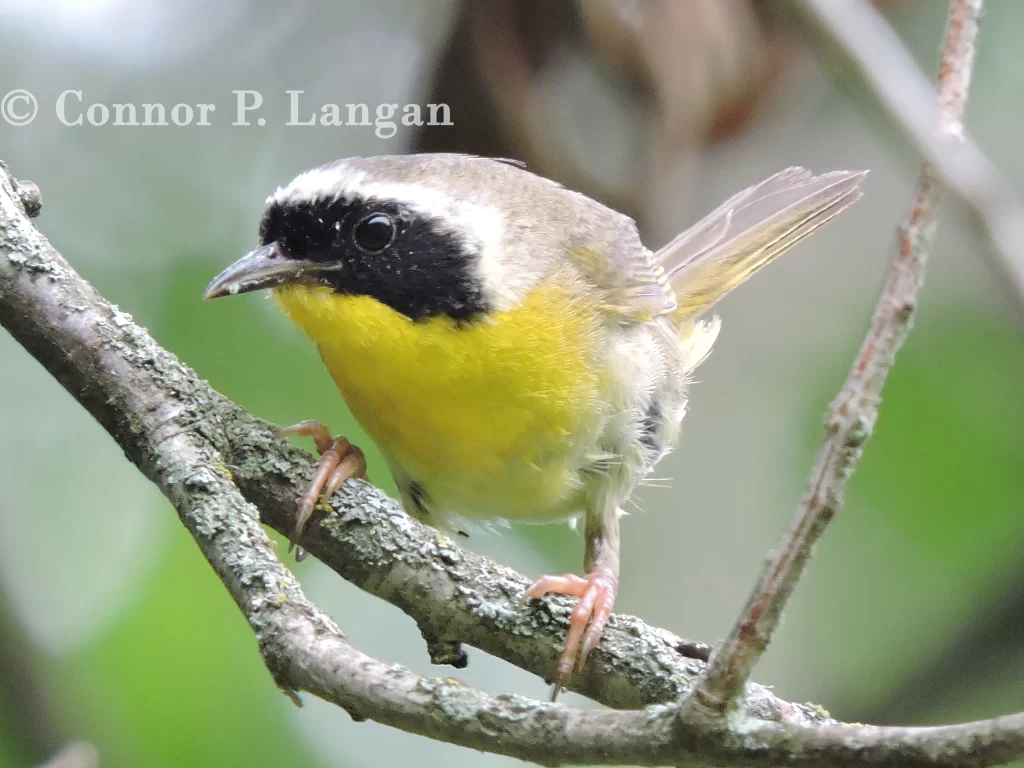
These songbirds of Minnesota are more at home in marshes than in trees, so look and listen for this species in wetlands.
Common Yellowthroats are among the most plentiful songbirds in the state during summer. This makes them one of the most abundant yellow birds in Minnesota.
Females are not as yellow as males, and they lack the black and white face mask.
Connecticut Warbler
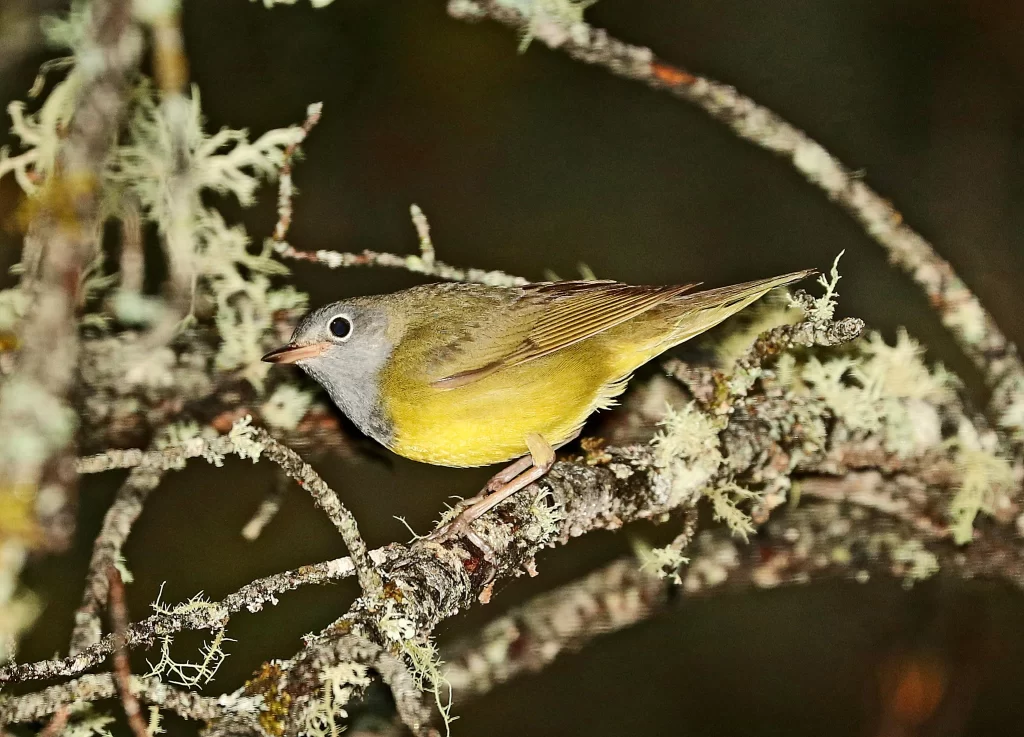
Though Connecticut Warblers breed in Minnesota in good numbers, their elusive and secretive nature makes them difficult to detect.
Those lucky enough to find one of these warblers in Minnesota likely discovered it among dense vegetation in a bog.
Hooded Warbler
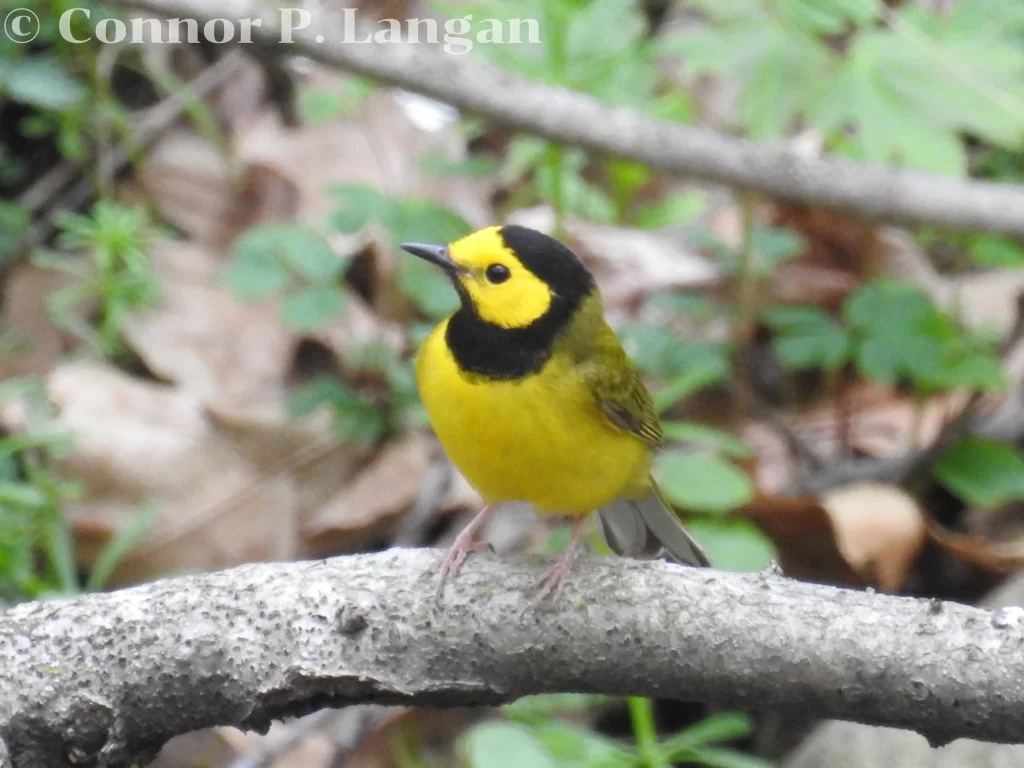
Hooded Warblers are uncommon migrants and occasional breeders in Minnesota. Those hoping to see these small yellow birds in Minnesota would have better luck trying in a southern state.
If you have the great fortune of observing this bird, it will likely be in forested habitats in the southeastern part of the state. Females lack the namesake black hoods of males.
Kentucky Warbler
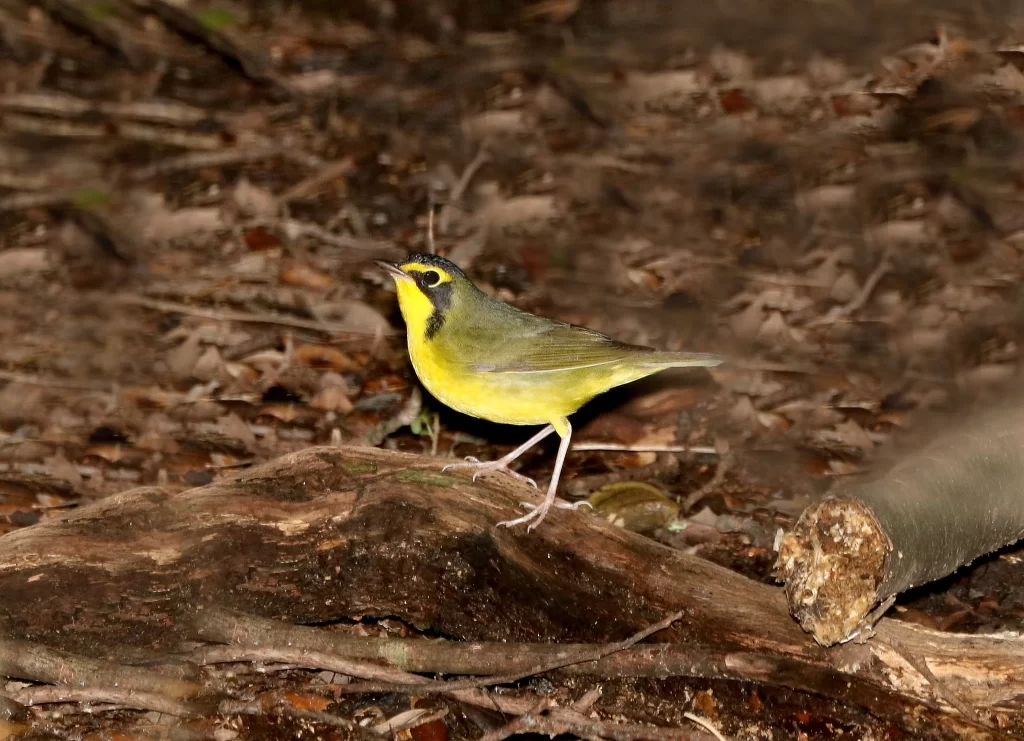
The rarest of the Minnesota yellow birds included on this list, Kentucky Warblers can infrequently be observed in the forests and bluffs of southeastern Minnesota.
Magnolia Warbler
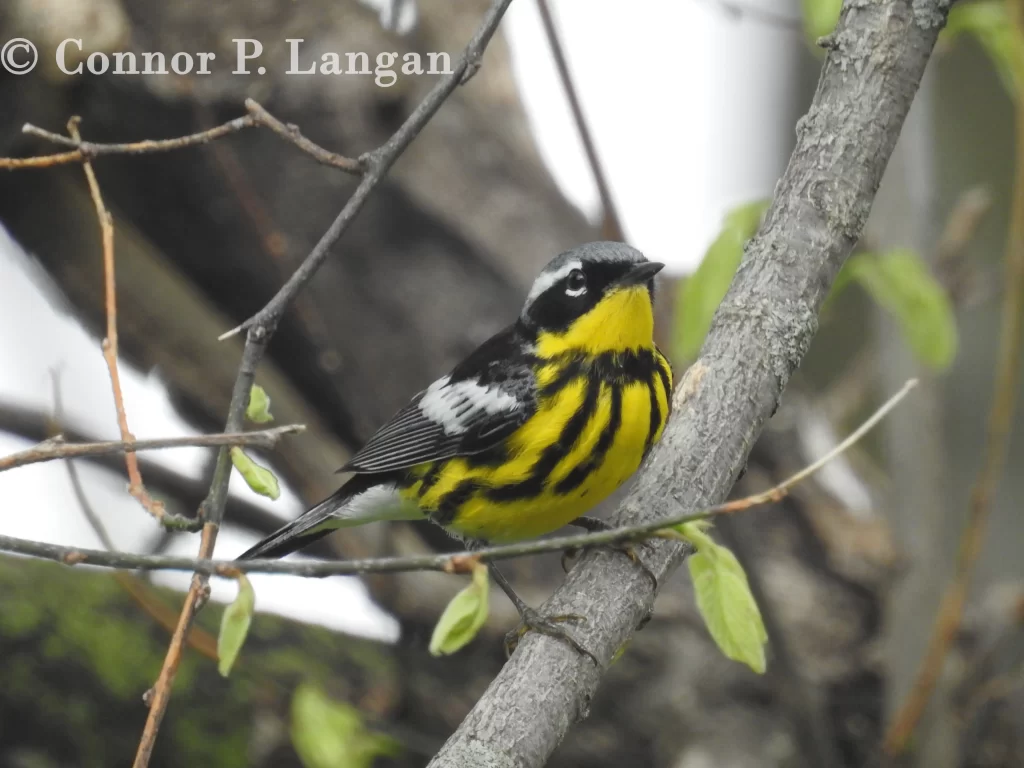
Magnolia Warblers are a common migrant in spring and early fall.
These attractive bright yellow birds in Minnesota are among the most abundant breeders in the boreal forests.
Mourning Warbler
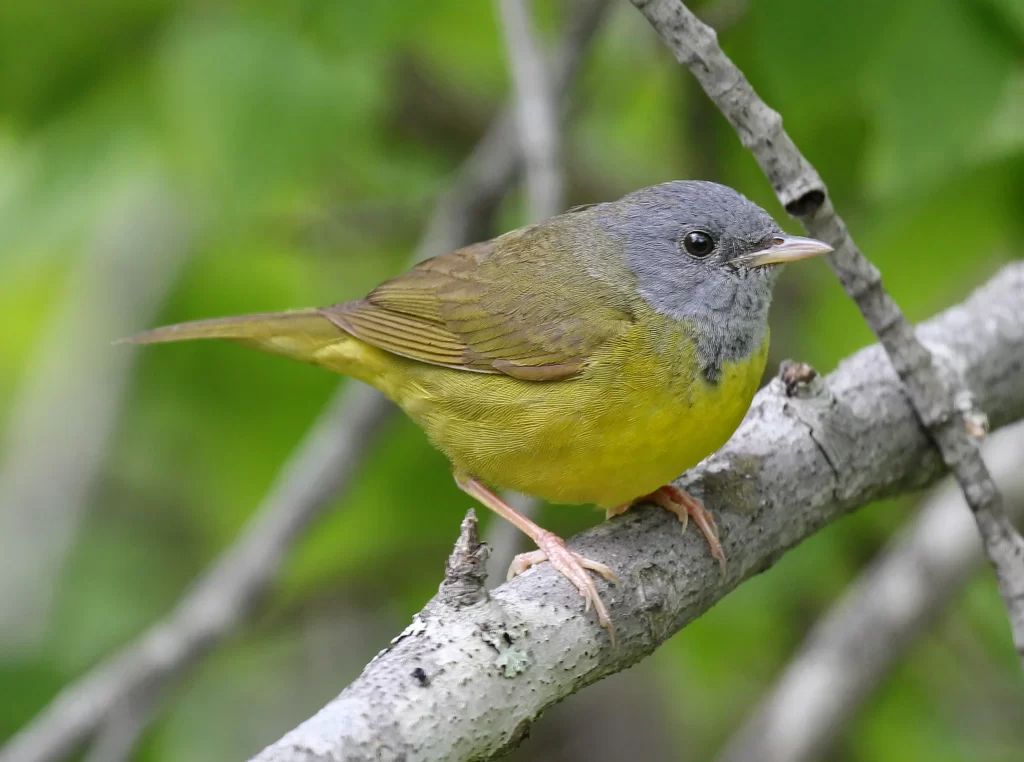
Though Mourning Warblers are plentiful during migration and the summer breeding season, these yellow birds of Minnesota are difficult to observe due to their secretive behavior.
If you patiently search the understory of forested areas from May through mid-September, you may be rewarded with a view of this elusive animal.
Nashville Warbler
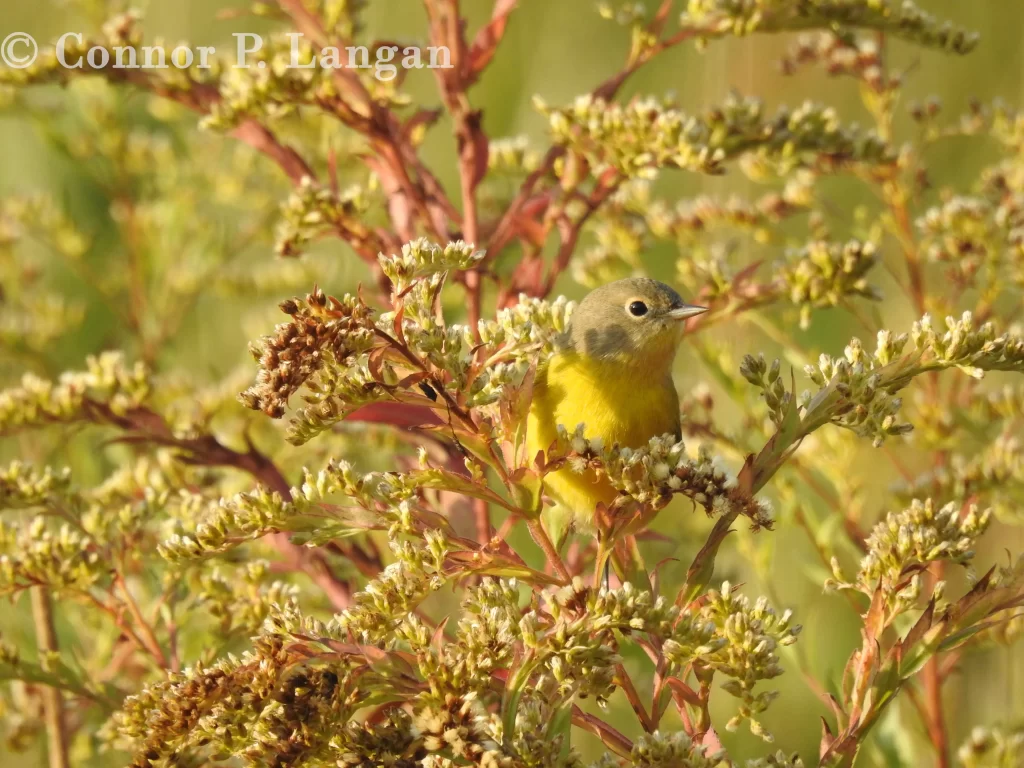
Nashville Warblers are abundant during their migration and the summer breeding season. This makes them one of the most widespread bright yellow birds in MN.
The canopies of trees in parks are good places to look for these creatures. They breed in the extensive forests along the Canada border where they gorge themselves with insects.
Palm Warbler
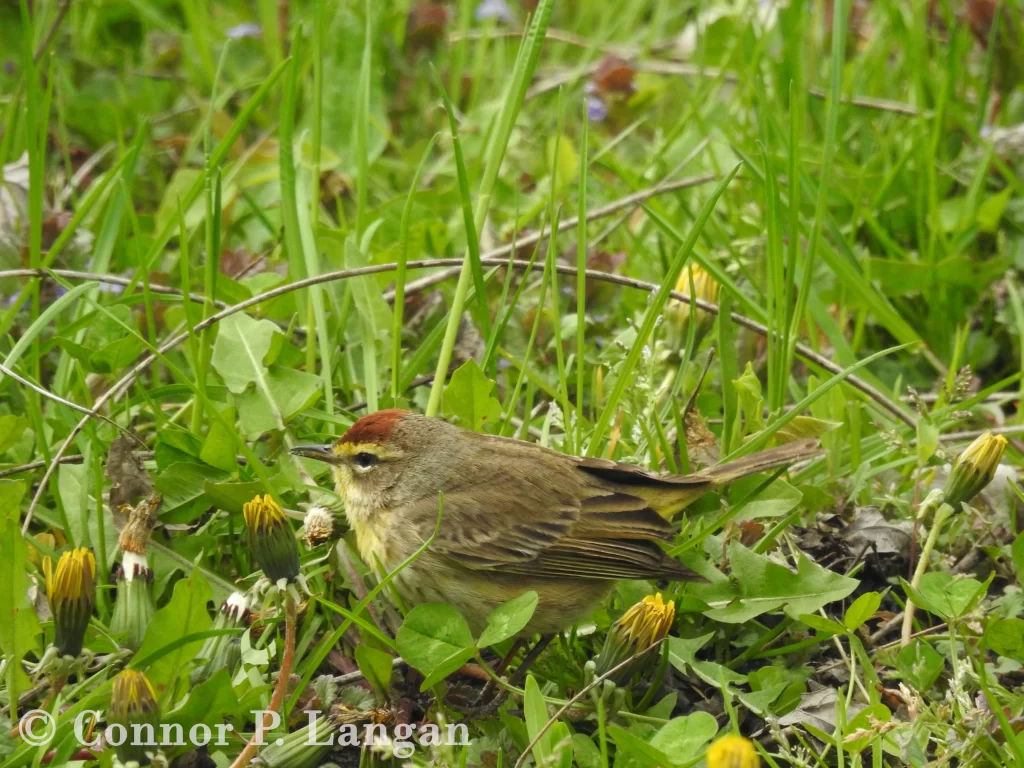
Palm Warblers are one of the earliest warblers in Minnesota to migrate through in spring.
They have some unusual habits compared to others on this list, as they frequently forage on the ground while constantly pumping their tails. These yellow birds in Minnesota breed in bogs of the boreal forest.
Pine Warbler
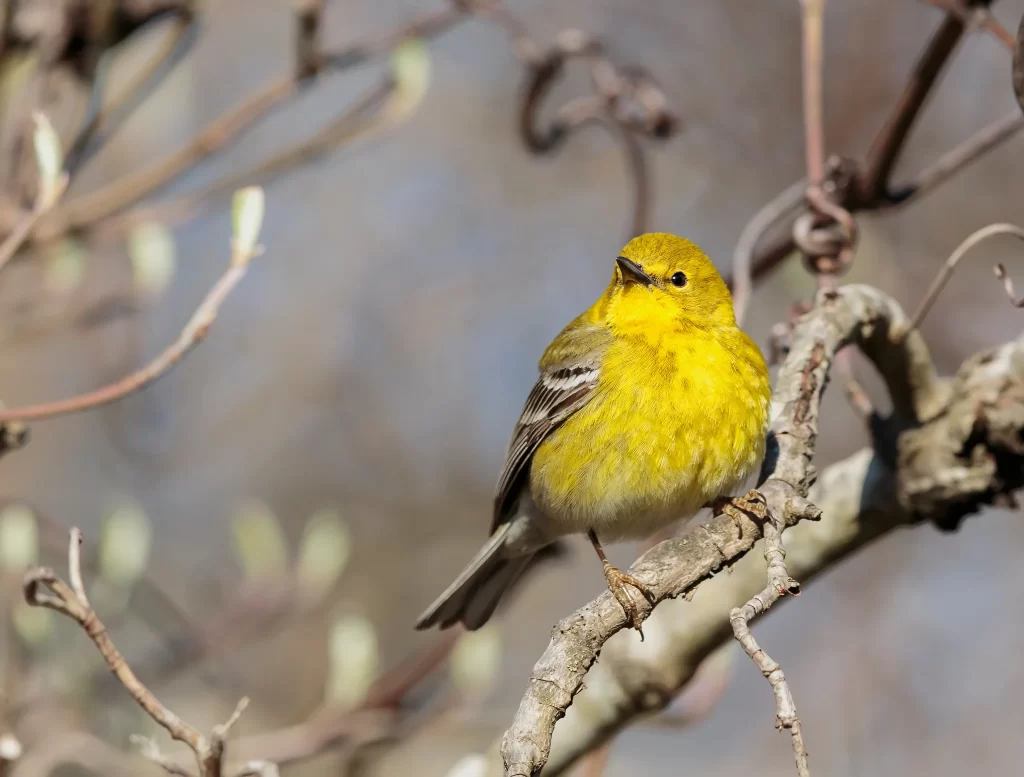
True to its name, this small yellow bird in Minnesota is mainly found in pine trees no matter the season.
They take advantage of the state’s plethora of pine trees, as many raise their young in the upper tier of the state.
Pine Warblers look similar to other yellow birds of Minnesota like the Yellow-throated Vireo, so make sure you get a good look before identifying a bird.
Prothonotary Warbler
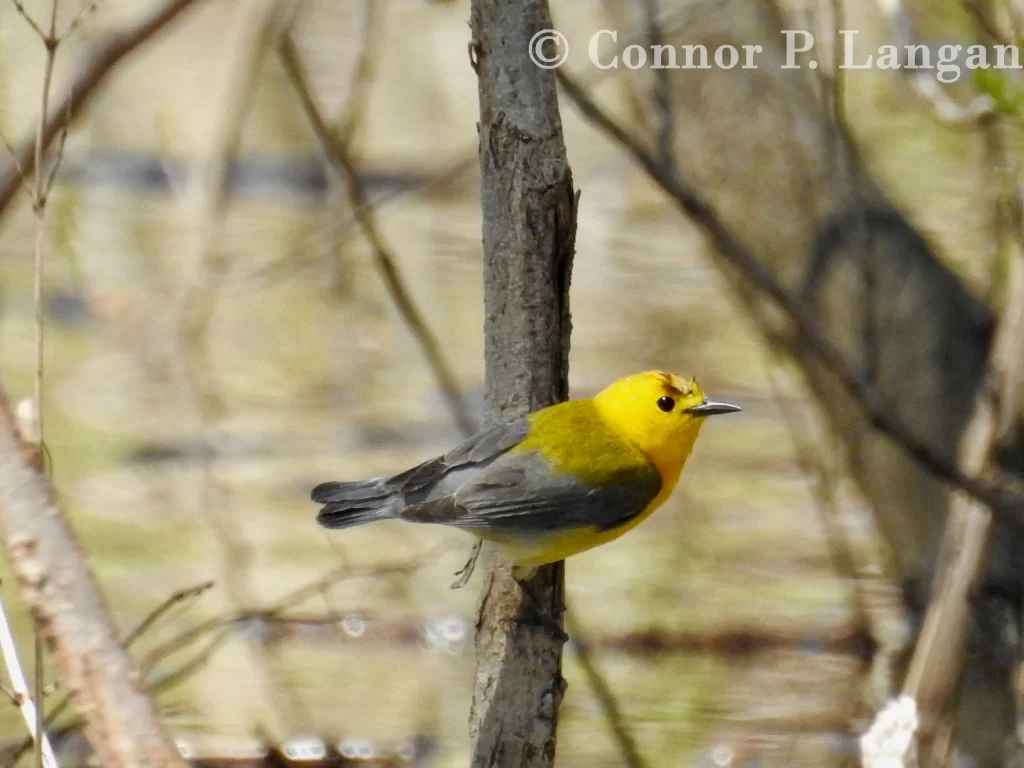
Absent from northern Minnesota, Prothonotary Warblers prefer the Mississippi River backwaters of southeastern Minnesota.
Of all of the Minnesota yellow birds, Prothonotary Warblers are the only ones that nests in tree cavities.
Wilson’s Warbler
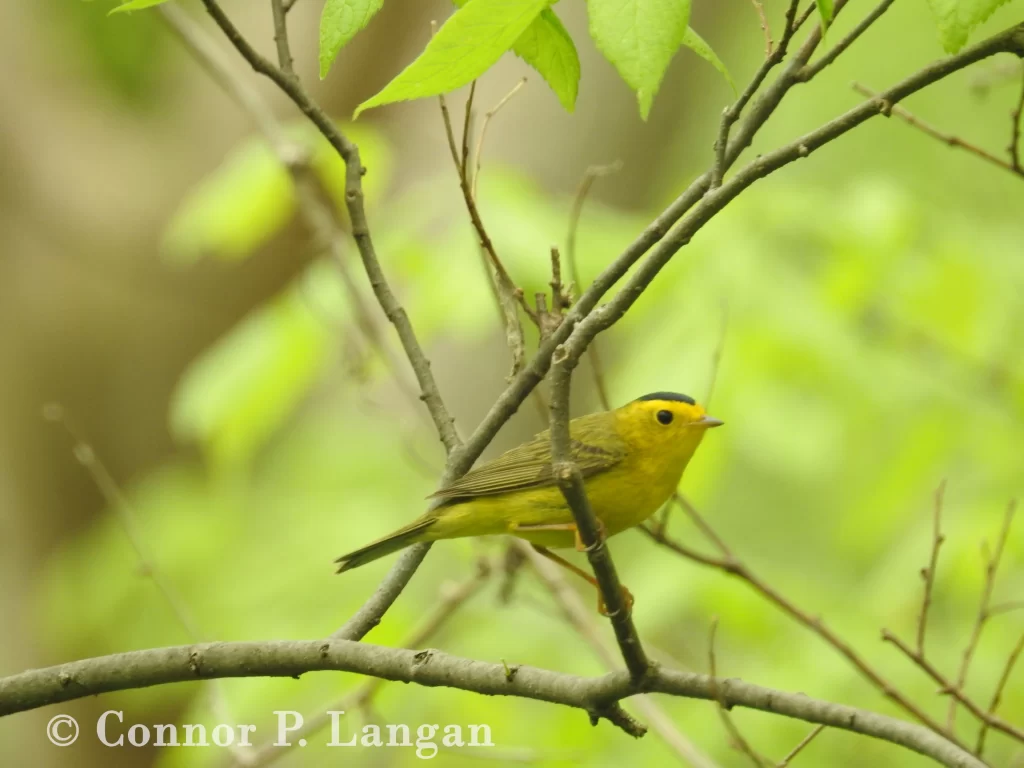
Wilson’s Warblers are commonly found foraging low to the ground in the undergrowth of forests. This species is fairly nondescript, so it is easily overlooked.
They breed in the north, but they are not as plentiful as other Minnesota warblers during the summer.
Yellow Warbler
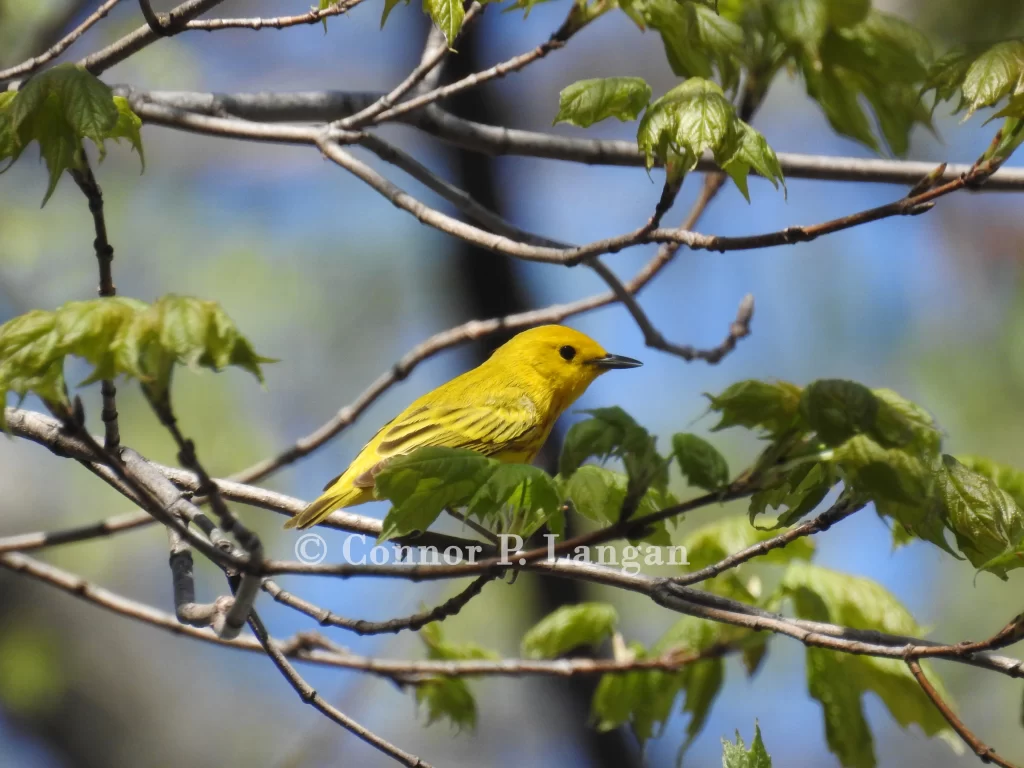
Yellow Warblers are one of the most common warblers in the United States.
These warblers in Minnesota are not typically discovered in dense forests like others. Instead, they reside along forest edges and open habitats with trees.
Cardinals and Grosbeaks
Seven species within the cardinal and grosbeak family can be found in Minnesota in any given year, but only one is among the yellow birds in Minnesota.
Dickcissel
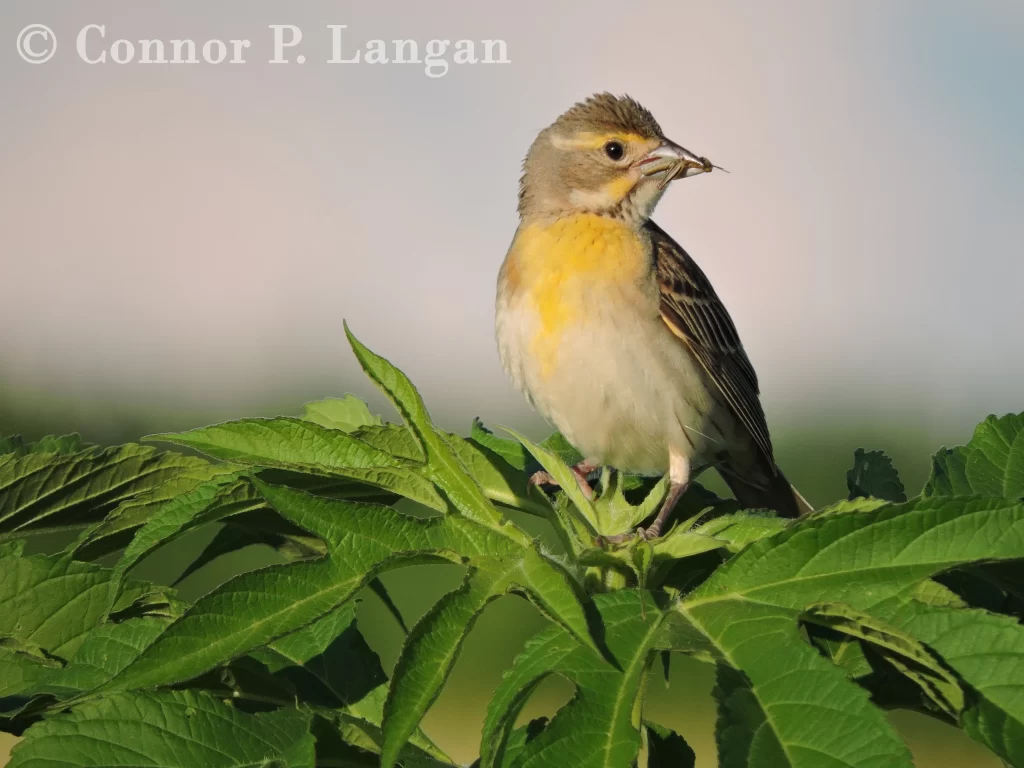
Dickcissels are common sights during the summer in southern and western Minnesota, but they are largely absent from north-central and north-eastern Minnesota.
Look for these birds with funny names in grasslands, pastures, hay fields, and any other open areas with grass.
